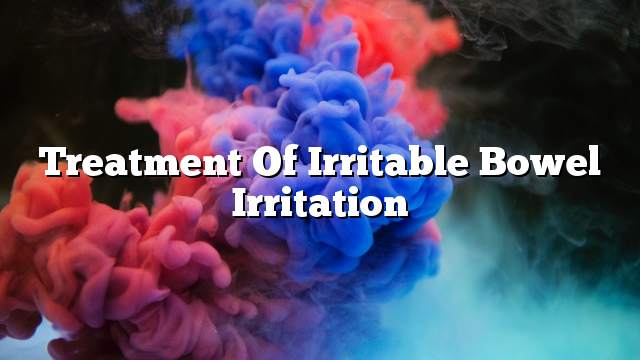IBS
Irritable bowel syndrome, or irritable bowel syndrome, means gastrointestinal tract inflammation in the large intestine (colon), which is unable to absorb water and salts coming from the small intestine during digestion, is one of the most common gastrointestinal diseases in adults; Nearly 20% of them, and women are more affected than men, and this syndrome is not infectious or hereditary.
Symptoms of Irritable Bowel Syndrome
There are some symptoms and indications that affect the patient and indicate that he has irritable bowel syndrome, including:
- Chronic abdominal pain accompanied by irregular defecation; chronic diarrhea, chronic constipation, diarrhea and constipation.
- Increased gas, bloating in the abdomen and gas retention.
- 25% to 50% of irritable bowel patients complain of indigestion, stomach upset, nausea, and vomiting.
- Anxiety and sleep disorders.
- The false desire to go to the bathroom.
It is worth mentioning that these symptoms may worsen in the case of travel, public events, and lifestyle changes because of the psychological stress that accompany these times.
Causes of Irritable Bowel Syndrome
The causes of this syndrome are still unknown and not yet identified, but many studies suggest that they are due to:
- Psychological disorders, stress and stress.
- Functional disorders in central neurons.
- Sensory and kinetic disorders of the colon.
- Some habits that irritate irritable bowel syndrome include legumes, tea and coffee, foods containing spices, soft drinks, garlic, uncooked onions, fried foods, and others.
Irritable bowel syndrome
Treatment of intestinal diseases is a difficult and complicated task. There is no magic cure that can lead to the elimination or cure of the disease. Therefore, the patient must live with the disease and learn how to deal with it and find out the reasons leading to it and avoid it. There are some habits to follow:
- Rest and stay away from stress, anxiety and things that cause mental disorders.
- Eat balanced and organized meals, stay away from high-fat foods and avoid junk foods.
- Eat plenty of water and fluids.
- Regular exercise.
- Do not take any medicine without consulting your doctor.
- Eat herbs such as: green tea, aniseed, peppermint, sage, and others.
- Visit your doctor if symptoms are chronic and very painful.
- Maintain adequate sleep.
- Take care to contain the diet on a large amount of fiber.
